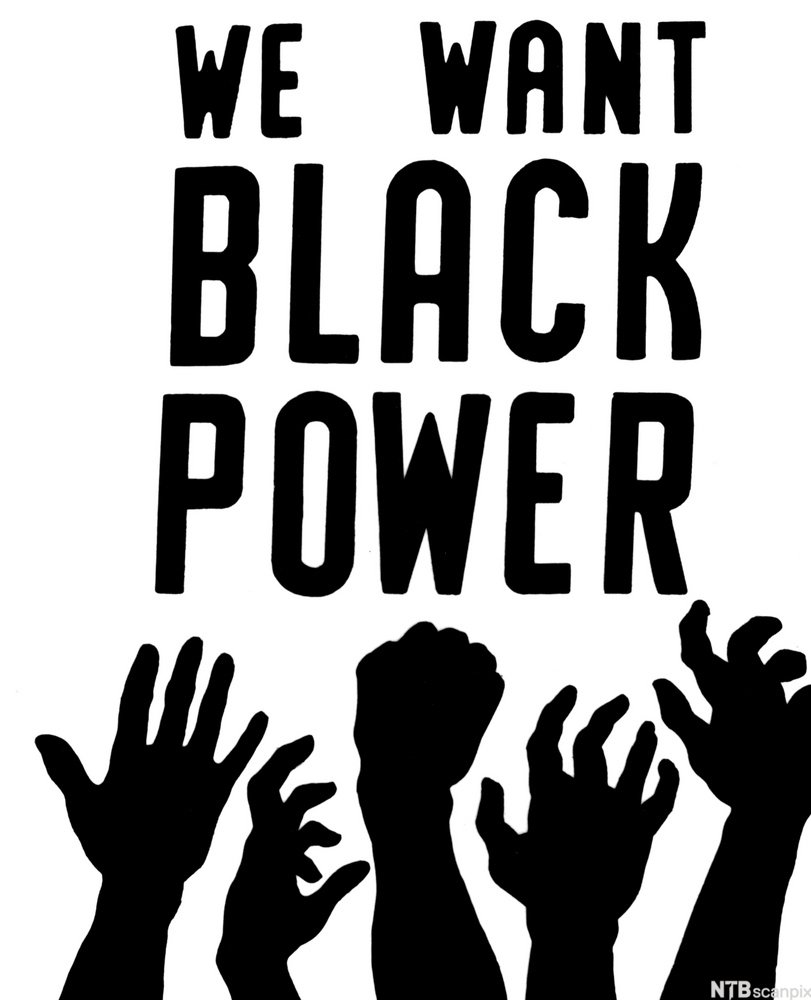In a world where connections are constantly evolving, building healthy relationships has become an art that holds immense value. At the heart of these enduring connections lie two pivotal elements: communication and mutual respect. Like the intricate brushstrokes on a masterpiece, these foundations intertwine harmoniously, creating a canvas that portrays flourishing bonds. With every word uttered and every gesture conveyed, healthy relationships blossom into a symphony of harmonious understanding. Join us as we embark on a journey to unravel the secrets of communication and mutual respect, unveiling the key to forging relationships that stand the test of time.
Building Healthy Relationships: Communication and Mutual Respect
Effective communication and mutual respect are the bedrock of any healthy relationship. Whether it’s a romantic partnership, a friendship, or a family dynamic, fostering open and honest communication sets the stage for trust, empathy, and understanding. By cultivating these essential qualities, you can create a solid foundation for lasting and fulfilling connections. Here are some key factors to consider:
- Active Listening: Show genuine interest in what the other person is saying and make them feel heard. Give your undivided attention, maintain eye contact, and avoid interrupting. Reflect on their words and respond thoughtfully, ensuring they know their thoughts and feelings are valued.
- Empathy is Essential: Put yourself in the other person’s shoes and try to understand their perspective and emotions. Cultivate empathy by actively acknowledging their feelings and experiences, even if you may not agree with them. This fosters an atmosphere of respect and creates a sense of validation for both parties.
- Healthy Conflict Resolution: Disagreements are natural in any relationship, but it’s how we handle them that matters. Engage in discussions with an open mind, focusing on finding solutions rather than assigning blame. Use “I” statements to express your feelings and concerns, and be receptive to compromise, aiming for win-win outcomes.
Remember, building healthy relationships requires ongoing effort and dedication. Practice effective communication and mutual respect consistently, and watch your connections flourish. Embrace vulnerability, seek understanding, and celebrate the strength of connection that arises from truly hearing and valuing the perspectives of others.

– The Power of Active Listening: Enhancing Connection and Understanding
Active listening is a skill that has the power to transform relationships, both personal and professional. In a world filled with distractions and constant noise, truly listening to another person can create a profound connection and enhance understanding.
So, what exactly is active listening? It goes beyond simply hearing what someone is saying – it involves giving your full attention, both verbal and non-verbal, to the speaker. By doing so, you show respect and empathy, making the other person feel valued and understood.
Mastering active listening requires practice and certain techniques. Here are some strategies to help you enhance your active listening skills:
- Maintain eye contact: Looking directly at the speaker shows that you are fully engaged and interested in what they have to say.
- Use non-verbal cues: Nodding your head, smiling, and leaning slightly forward demonstrate that you are actively listening and encouraging the speaker to continue.
- Avoid interrupting: Allow the speaker to finish their thoughts before jumping in. Resist the urge to immediately offer advice or share your own experiences.
- Ask clarifying questions: When appropriate, ask questions to ensure you understand the speaker’s meaning and to show genuine interest in their perspective.
By practicing active listening, you can foster stronger connections with those around you. It opens the door for deep conversations, trust-building, and improved problem-solving. So, the next time you find yourself in a conversation, set aside distractions, be fully present, and experience the powerful impact of active listening.

– Nurturing Empathy: Cultivating Emotional Intelligence for Deeper Connections
Nurturing Empathy: Cultivating Emotional Intelligence for Deeper Connections
Empathy is the key that unlocks the door to meaningful connections with others. It allows us to understand and share the feelings of another person, fostering stronger relationships and deeper understanding. Cultivating empathy can be a transformative journey that not only benefits our interactions with others but also nurtures our own emotional intelligence. Here are some ways to nourish and develop empathy in our everyday lives:
- Practice active listening: Truly hearing and understanding others requires us to be present in the moment. By giving our full attention and suspending judgment, we create a safe space for people to express themselves authentically.
- Engage in perspective-taking: Stepping into someone else’s shoes allows us to gain insight into their emotions and experiences. This helps us develop a broader worldview and appreciate the diverse perspectives that make up our society.
- Cultivate self-awareness: Emotional intelligence starts with understanding our own feelings. By recognizing and managing our own emotions, we become better equipped to connect with and understand the emotions of others.
- Practice compassion: Showing kindness and empathy towards others promotes a nurturing environment. Small acts of compassion can create a ripple effect, inspiring others to cultivate empathy in their own lives.
Cultivating empathy is a continuous process that requires intention and practice. The more we actively work on nurturing our emotional intelligence, the more profound and meaningful our connections with others become. By nourishing empathy within ourselves, we contribute to a more compassionate and understanding world.

– Constructive Conflict Resolution: Strategies for Overcoming Relationship Challenges
Constructive Conflict Resolution: Strategies for Overcoming Relationship Challenges
In the realm of relationships, conflicts are bound to arise from time to time. The key to maintaining healthy and thriving connections lies in our ability to approach these challenges with a constructive mindset. By adopting effective strategies for conflict resolution, we can transform tension into an opportunity for growth, understanding, and strengthen the bonds we share.
Reframing Perspectives:
One powerful strategy for constructive conflict resolution is to reframe perspectives. Instead of viewing differences as barriers, consider them as opportunities for learning. Encourage open and honest dialogue, where both parties actively listen and seek to understand each other’s viewpoints without judgment. This shift in perspective can promote empathy, foster deeper connections, and pave the way for meaningful resolutions.
The Power of Compromise:
Compromise is a vital element of resolving conflicts in any relationship. Embrace the idea of finding common ground and seek win-win solutions. Recognize that no one person’s needs should dominate over the other’s. By collaboratively identifying shared goals or alternative approaches, you can create mutually beneficial outcomes that honor both individuality and togetherness.
Cultivating Emotional Intelligence:
Emotional intelligence plays a fundamental role in navigating relationship challenges. Practice self-awareness and develop a deeper understanding of your emotions, triggers, and communication patterns. Encourage your partner to do the same. This shared commitment to emotional growth can foster an environment of compassion and empathy. When conflicts arise, strive to express yourselves thoughtfully, acknowledge each other’s feelings, and communicate with respect.
In conclusion, constructive conflict resolution is an art that requires patience, understanding, and an open mind. By reframing perspectives, embracing compromise, and cultivating emotional intelligence, we can transform relationship challenges into opportunities for connection and growth. Remember, conflicts are not roadblocks, but rather stepping stones on the path to building stronger, more resilient bonds.

– Setting Boundaries: Fostering Mutual Respect and Maintaining Healthy Interactions
Welcome to this insightful section on setting boundaries, a fundamental aspect of fostering mutual respect and maintaining healthy interactions. By establishing clear boundaries in our relationships, we can create a safe and respectful environment that promotes positive interactions. Let’s explore some effective ways to set boundaries and nurture healthier relationships.
1. Reflect on your values: Begin by understanding your own needs and values. Take some time to reflect on what is important to you in a relationship and what your personal boundaries are. Recognizing and honoring your own boundaries is crucial to foster self-respect and communicate them effectively to others.
2. Communicate openly: Effective communication is key in setting boundaries. Clearly express your needs, expectations, and limits to those around you. Use assertive language and avoid being passive or aggressive. By expressing yourself respectfully and honestly, you can build understanding and encourage others to do the same.
3. Respect others’ boundaries: Boundaries work both ways. Just as you desire your boundaries to be respected, make sure to respect others’ boundaries as well. Everyone has different comfort levels and limits, so be mindful and sensitive to their needs. Show empathy and consider their perspective to create a balanced and harmonious relationship.
Remember, setting boundaries is not about controlling others or shutting them out entirely. It is about fostering mutual respect, understanding, and creating a healthy space for all parties involved. By implementing healthy boundaries, we can cultivate relationships that thrive on trust, openness, and compassion.

– The Art of Effective Expression: Honing Communication Skills for Stronger Relationships
The Power of Words: Cultivating Stronger Connections through Effective Communication
Communication is the heart and soul of any relationship, shaping our interactions and fostering a deeper understanding between individuals. When it comes to strong relationships, the art of effective expression plays a crucial role in building trust, resolving conflicts, and creating lasting connections. It goes beyond mere words and encompasses the way we choose to convey our thoughts, emotions, and desires.
So, how can we hone our communication skills to enhance our relationships? Here are some valuable tips:
- Active Listening: Truly engage in conversations by giving your undivided attention. Show genuine interest in what the other person has to say, allowing them to feel heard and understood.
- Clarity and Simplicity: Strive to express your thoughts in a concise and understandable manner. Avoid using jargon or complex language that might hinder effective comprehension.
- Non-Verbal Communication: Pay attention to your body language, as it can convey powerful messages. Maintain eye contact, use appropriate gestures, and observe the impact of your tone of voice.
- Empathy and Understanding: Put yourself in the other person’s shoes, acknowledging their feelings and perspectives. Respond with empathy, seeking mutual understanding, and working together to find solutions.
Remember, effective communication is a two-way street, requiring both sender and receiver to be actively involved. By fostering these skills, we can create an environment where open dialogue flourishes, allowing for stronger connections, improved emotional intimacy, and a more fulfilling life journey with our loved ones.
Concluding Remarks
As we bid farewell to this discussion on building healthy relationships through communication and mutual respect, we hope you’ve found inspiration to weave harmony into the fabric of your connections. From the depths of our hearts, we encourage you to embark on this transformative journey with an open mind and a genuine passion for building bridges rather than walls.
In a world brimming with noise and distractions, it is crucial to acknowledge the significance of clear and compassionate communication, as it breathes life into our relationships. By daring to express our thoughts and emotions openly, we pave the way for understanding and empathy to flourish. Remember, dear reader, there is power in vulnerability, and it is through the sharing of our authentic selves that we cultivate trust and intimacy with those we hold dear.
Yet, communication alone is simply the foundation on which rests the edifice of a healthy relationship. Mutual respect is the mortar that binds it together, ensuring its endurance against the storms of life. It is an unwavering commitment to acknowledging the inherent worth and dignity of every individual in our lives. For it is through respect that we foster an environment where love, compassion, and kindness can thrive.
Let us not forget that building healthy relationships is not a destination, but an ongoing journey. An exploration filled with twists and turns, ups and downs, where we are constantly learning and growing alongside those we cherish. It is essential to approach this journey with patience, understanding that no relationship is perfect. Mistakes will be made, disagreements will arise, and misunderstandings may cloud the horizon. However, it is how we navigate these challenges, armed with effective communication and a foundation of mutual respect, that will strengthen the bonds we hold so dear.
As we conclude our exploration of this topic, we invite you to take a moment of reflection. Consider the relationships in your life, and the role that communication and mutual respect play within them. What steps can you take to enhance these essential elements? How can you be more present, more understanding, and more empathetic? Remember, the key to healthy relationships lies within our grasp; we need only the courage and determination to unlock their potential.
So, with this final plea echoing in our hearts, we bid adieu. May your journey be one filled with love, laughter, understanding, and growth. And may the foundation of communication and mutual respect pave the way to the flourishing of your relationships. Go forth, dear reader, and build extraordinary connections that withstand the test of time.




